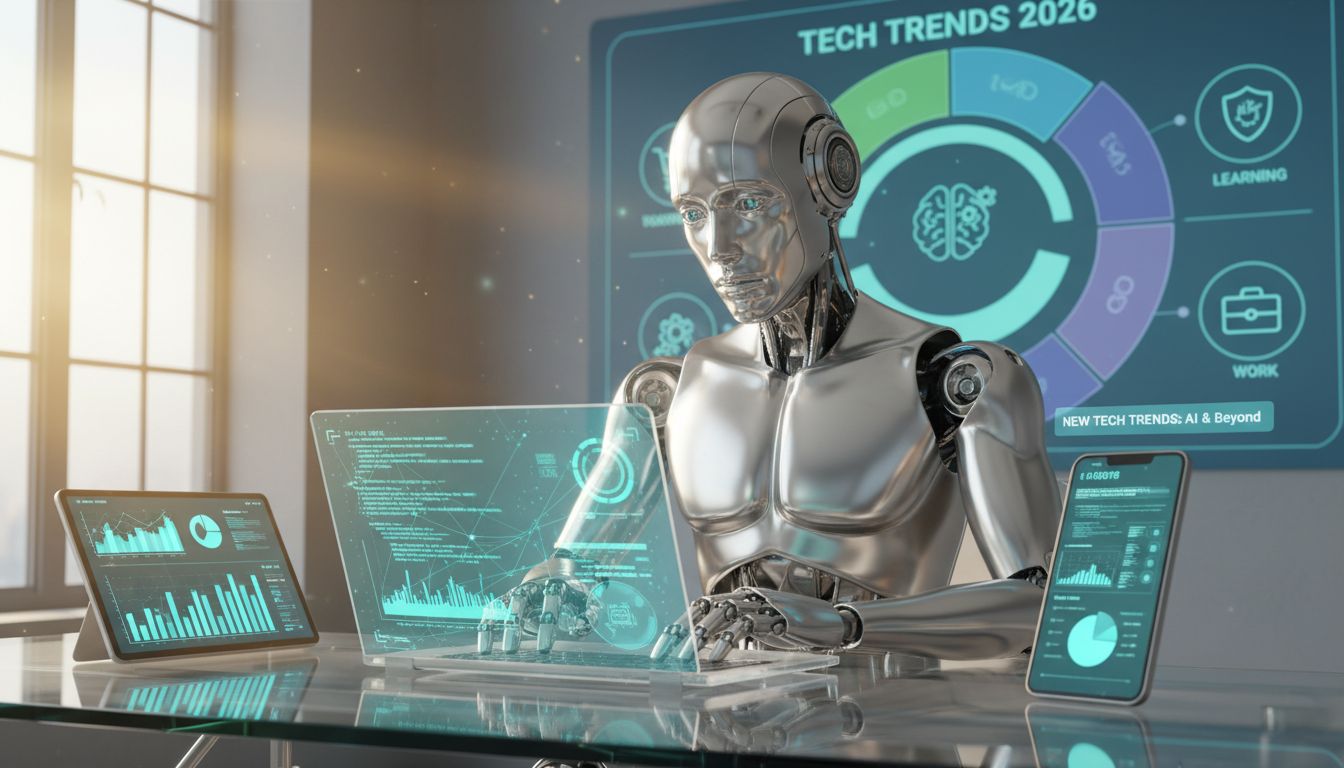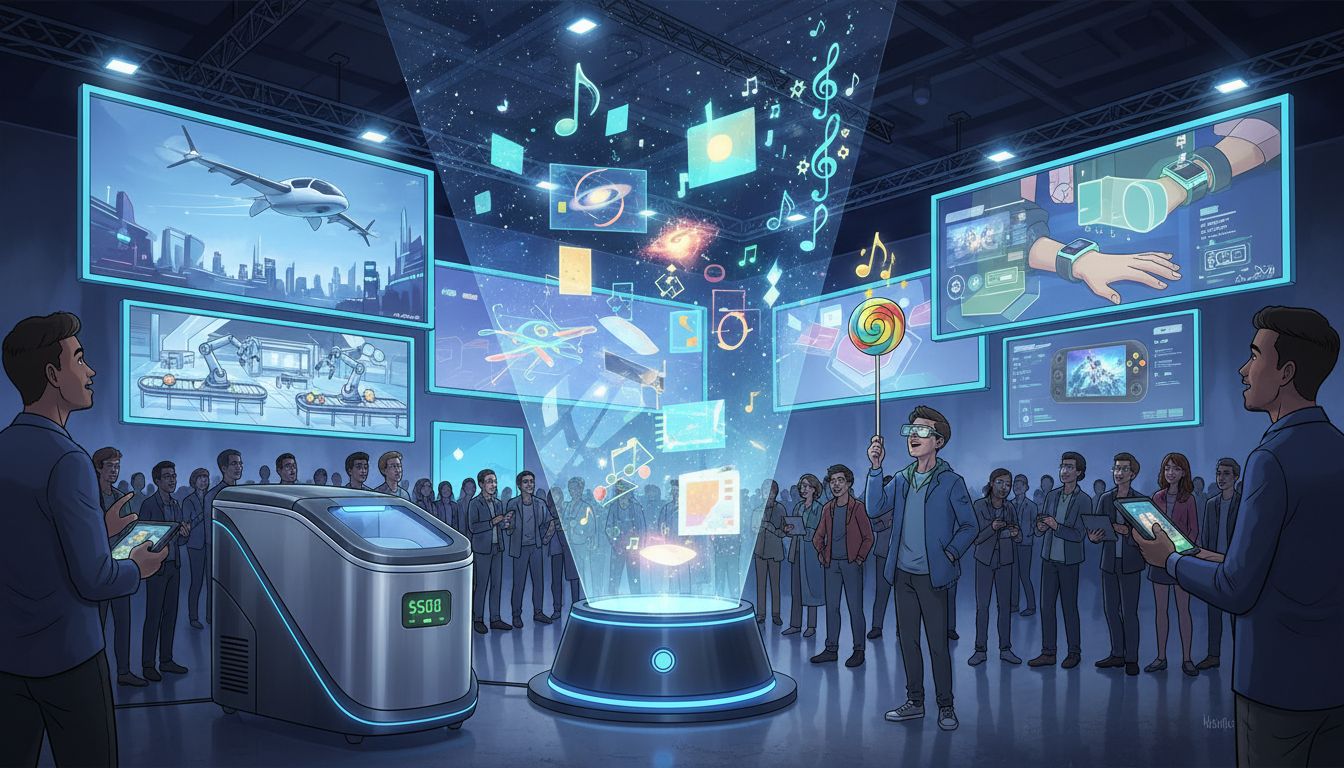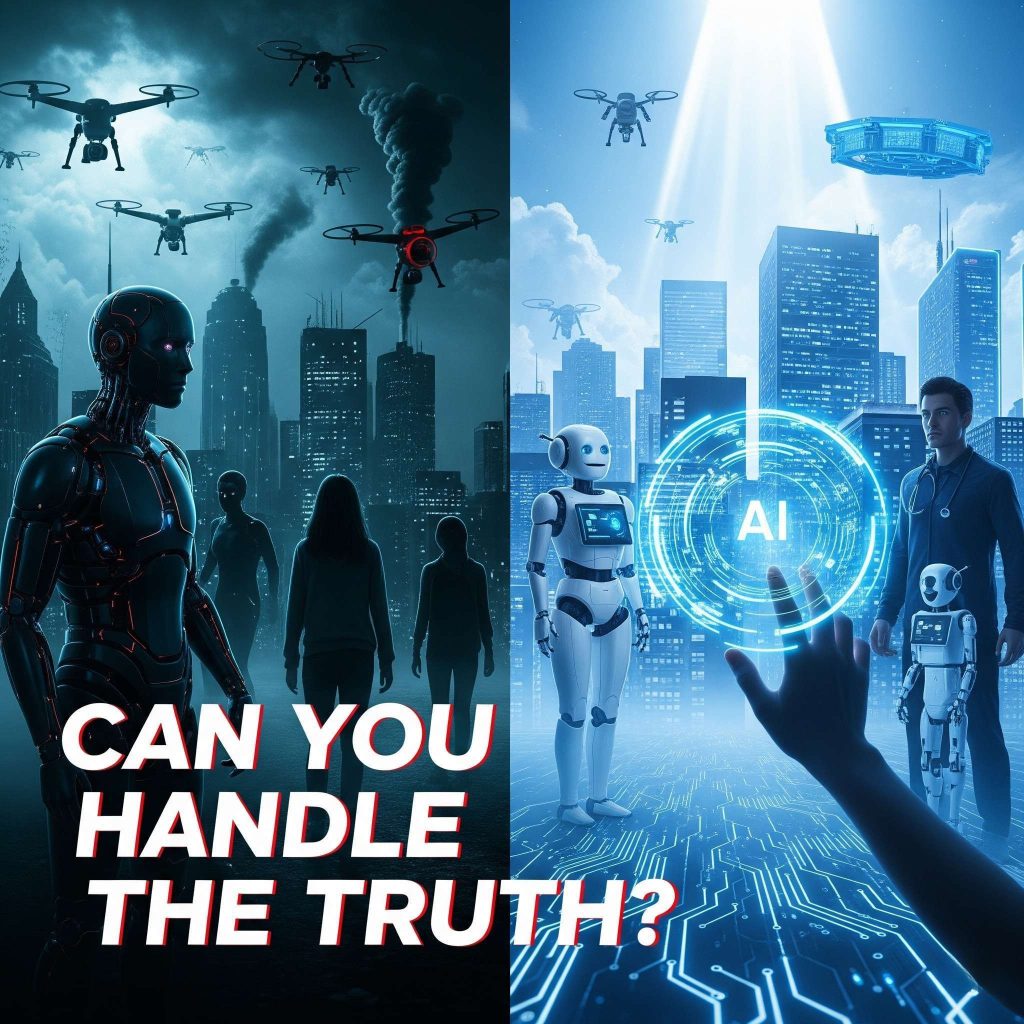
- Introduction
- What Is Artificial Intelligence?
- AI’s Impact on Industry
- Social Changes Driven by AI
- Economic Implications of AI
- The Ethical Challenges of AI
- AI and Human Rights
- Bias in AI Systems
- Privacy and Data Concerns
- Accountability in AI Systems
- AI in Healthcare: Opportunities and Risks
- AI’s Role in Employment
- Environmental Impacts of AI
- AI in Warfare and Security
- Principles for AI Bioethics
- Additional Ethical Principles
- Implementing Ethical AI
- Global Perspectives on AI Ethics
- AI and Cultural Impacts
- The Role of Education in AI Ethics
- AI’s Potential for Social Good
- Challenges of Regulating AI
- The Future of AI and Bioethics
- Practical Steps for Ethical AI Today
- Conclusion: Shaping AI’s Future
Introduction
Artificial intelligence (AI) is reshaping our world. Often called the fourth industrial revolution (IR 4.0), AI changes how we work, connect, and understand ourselves. Unlike past revolutions, AI’s impact is profound, touching every aspect of human life. This article explores AI’s definition, its effects on society, and the ethical principles needed to guide its development. By understanding AI’s potential, we can harness its benefits responsibly.
We will emphasize AI’s revolutionary role and discuss how AI influences industries, social interactions, and economic systems. Consequently, new ethical frameworks are essential to ensure AI serves humanity’s best interests. Let’s dive into what AI is and why it matters today.
What Is Artificial Intelligence?
AI refers to systems that mimic human intelligence. These systems perform tasks like problem-solving, learning, and decision-making. For example, AI powers voice assistants like Siri and self-driving cars. It uses algorithms to analyze data and make predictions, often surpassing human capabilities in speed and accuracy.
However, AI is not human. It lacks emotions and moral judgment. Therefore, its actions depend on how humans design and program it. The study highlights two types: weak AI, for specific tasks like facial recognition, and strong AI, which aims for general intelligence. Most AI today is weak, but its impact is still massive.
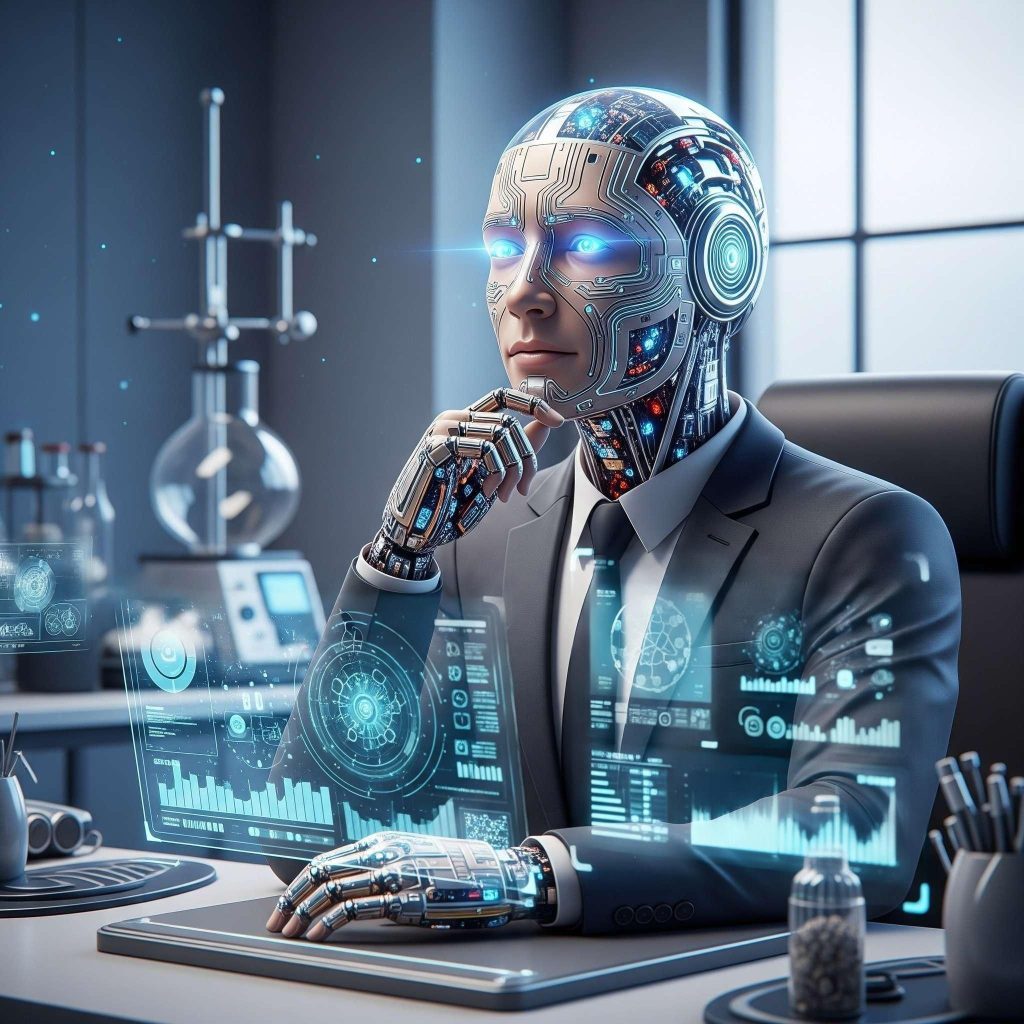
AI’s Impact on Industry
AI is transforming industries worldwide. In manufacturing, robots powered by AI streamline production lines. They work faster and reduce errors, boosting efficiency. For instance, car factories use AI to assemble vehicles with precision. This saves time and cuts costs significantly.
Moreover, AI enhances healthcare. It analyzes medical scans to detect diseases like cancer early. In finance, AI predicts market trends, helping investors make smarter choices. However, these advancements raise concerns about job displacement. The study notes that AI’s industrial impact requires careful oversight to balance benefits and risks.
Social Changes Driven by AI
AI is changing how we interact. Social media platforms use AI to curate content, shaping what we see online. For example, algorithms suggest videos based on your viewing history. This personalizes experiences but can create echo chambers, limiting diverse perspectives.
Additionally, AI influences relationships. Chatbots provide companionship for some, while others worry about reduced human connection. Consequently, AI’s social impact is double-edged—it enhances convenience but challenges authentic interactions. The study stresses the need for ethical guidelines to address these shifts.
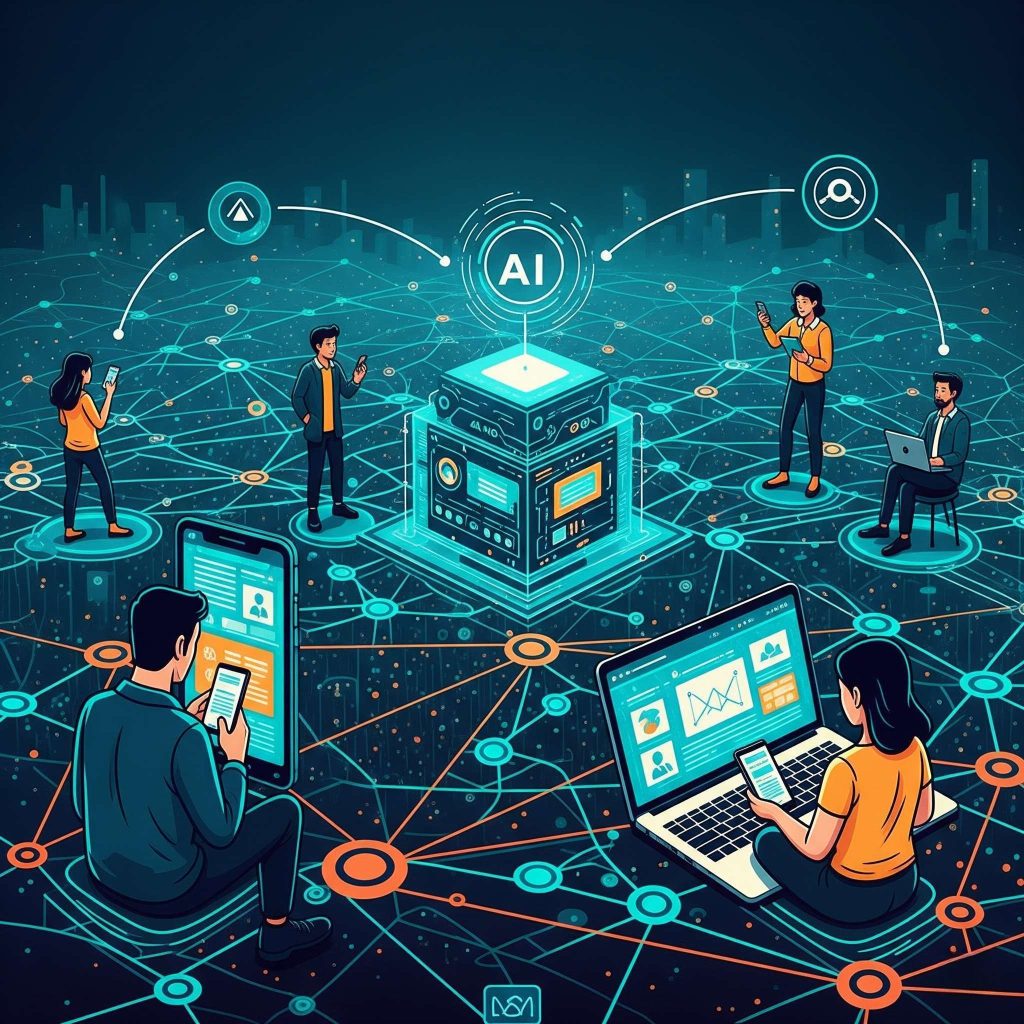
Economic Implications of AI
AI drives economic growth but also disruption. It creates new industries, like autonomous vehicle development, generating jobs. However, automation threatens traditional roles. For instance, AI-powered kiosks replace cashiers in some stores. This shift can widen income inequality if workers aren’t retrained.
On the positive side, AI boosts productivity. It helps businesses analyze data to make better decisions. According to estimates, AI could save industries billions annually. Yet, the study warns that economic benefits must be distributed fairly to avoid societal harm.
The Ethical Challenges of AI
AI raises unique ethical questions. Unlike natural entities, AI is a human creation without feelings. This makes its ethical use complex. For example, biased algorithms in facial recognition can unfairly target certain groups. The 2020 NeurIPS conference1 highlighted how such biases harm vulnerable populations.
Furthermore, AI’s lack of moral judgment means it follows programmed instructions. If those instructions are flawed, harm can result. Therefore, bioethics, which traditionally governs relationships among living beings, must evolve to include AI. The study calls for new principles to ensure AI aligns with human values.

AI and Human Rights
AI can threaten human rights. Algorithms collecting vast amounts of data raise privacy concerns. For instance, China’s social credit system uses AI to monitor citizens, potentially leading to oppression. Similarly, predictive policing can reinforce racial biases if not carefully designed.
However, AI can also protect rights. It improves access to healthcare in remote areas through telemedicine. Nevertheless, the study emphasizes that AI’s impact on rights depends on how it’s governed. Ethical frameworks must prioritize fairness and transparency to prevent harm.
Bias in AI Systems
Bias is a major ethical issue in AI. Algorithms learn from data, which can reflect human prejudices. For example, hiring tools trained on biased data may favor certain demographics. This perpetuates inequality in workplaces and beyond.
To address this, developers must audit algorithms regularly. Diverse teams can help identify and correct biases. Moreover, the study suggests that transparency in AI design is crucial. By making algorithms open, society can ensure they serve everyone fairly.

Privacy and Data Concerns
AI relies on massive datasets, raising privacy issues. Smart devices track our habits, from browsing history to location data. For instance, fitness apps monitor health metrics, which companies could misuse. This erodes personal privacy if not regulated.
Additionally, data breaches expose sensitive information. The study argues for strict data protection laws, like the EU’s GDPR, to safeguard users.2 Consequently, balancing AI’s benefits with privacy rights is a pressing ethical challenge.
Accountability in AI Systems
Who is responsible when AI causes harm? If an autonomous car crashes, is it the programmer, manufacturer, or user at fault? These questions highlight the need for clear accountability. The study notes that AI’s opacity—its “black box” nature—makes it hard to trace decisions.
Therefore, developers must create explainable AI systems. Transparent algorithms allow users to understand how decisions are made. This fosters trust and ensures accountability, aligning with the study’s call for ethical governance.
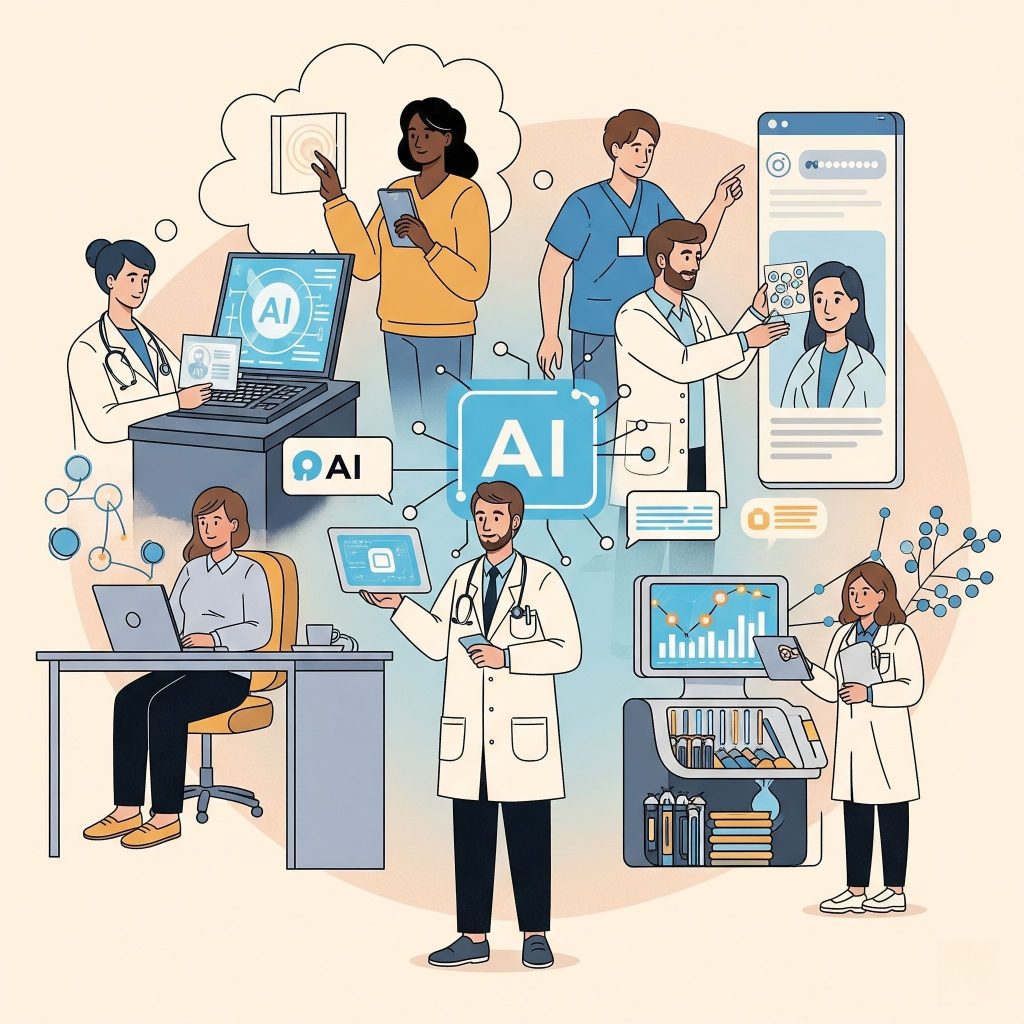
AI in Healthcare: Opportunities and Risks
AI is revolutionizing healthcare. It powers diagnostic tools that detect diseases with high accuracy. For example, AI can analyze X-rays faster than radiologists, saving lives. It also personalizes treatment plans, improving patient outcomes.
However, risks remain. Overreliance on AI could reduce human oversight, leading to errors. Additionally, unequal access to AI tools may widen health disparities. The study stresses that ethical AI in healthcare must prioritize patient welfare and equity.
AI’s Role in Employment
AI’s impact on jobs is complex. It automates repetitive tasks, freeing workers for creative roles. For instance, AI handles data entry, allowing employees to focus on strategy. Yet, automation displaces workers in industries like manufacturing and retail.
To mitigate this, retraining programs are essential. Governments and companies must invest in upskilling workers. The study suggests that ethical AI development should include plans to support affected workers, ensuring economic stability.
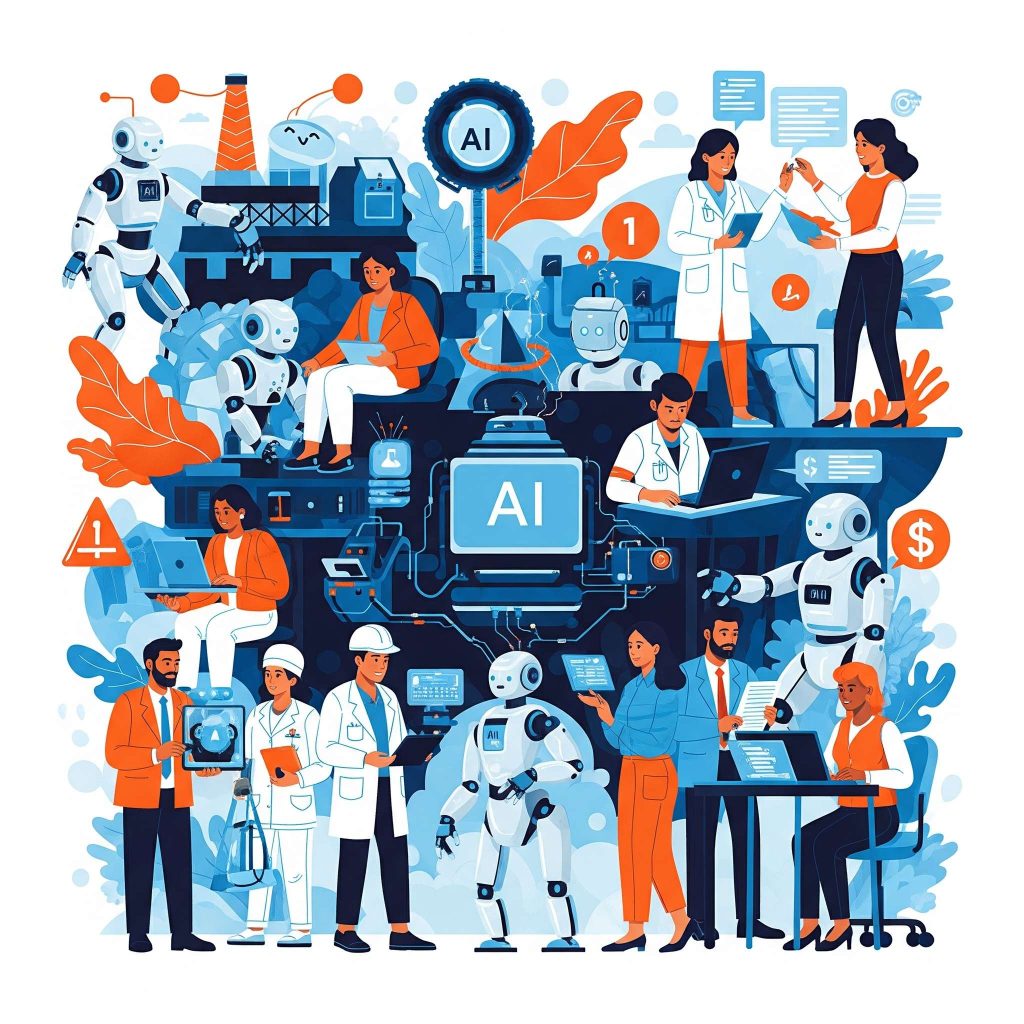
Environmental Impacts of AI
AI can benefit the environment. It optimizes energy use in smart cities, reducing emissions. For example, AI controls traffic lights to cut congestion and fuel waste. It also aids climate research by analyzing weather patterns.
However, AI’s energy demands are high. Training large models consumes vast amounts of electricity, contributing to carbon footprints. Therefore, the study calls for sustainable AI practices, like using renewable energy, to minimize environmental harm.
AI in Warfare and Security
AI’s use in warfare raises serious ethical concerns. Autonomous weapons could make decisions without human input, risking unintended escalations. For instance, drones with AI might misinterpret targets, causing civilian harm. This challenges international laws on warfare.
On the other hand, AI enhances security. It detects cyber threats faster than humans. Nevertheless, the study warns that military AI must follow strict ethical guidelines to prevent catastrophic misuse.

Principles for AI Bioethics
To address these challenges, the study proposes four bioethical principles for AI. First, beneficence: AI should benefit humanity and the universe. For example, AI in disaster response can save lives by predicting floods. This principle ensures AI serves the greater good.
Second, value upholding: AI must respect human dignity and rights. This means avoiding harm, like biased policing algorithms. These principles guide developers to create AI that aligns with ethical values.
Additional Ethical Principles
The third principle is lucidity, or transparency. AI systems must be clear about how they work. For instance, users should understand how a loan approval algorithm makes decisions. This builds trust and accountability.
Finally, accountability ensures that humans remain responsible for AI’s actions. If an AI medical tool misdiagnoses, developers or operators must be answerable. These principles, the study argues, create a framework for ethical AI development.
Implementing Ethical AI
Applying these principles requires action. Governments must create regulations, like the EU’s AI Act3, to enforce ethical standards. Companies should form ethics boards to oversee AI projects. For example, Google’s AI ethics council reviews new technologies.
Moreover, public involvement is key. Citizens should have a say in how AI is used. The study emphasizes that inclusive governance ensures AI reflects society’s values and needs.
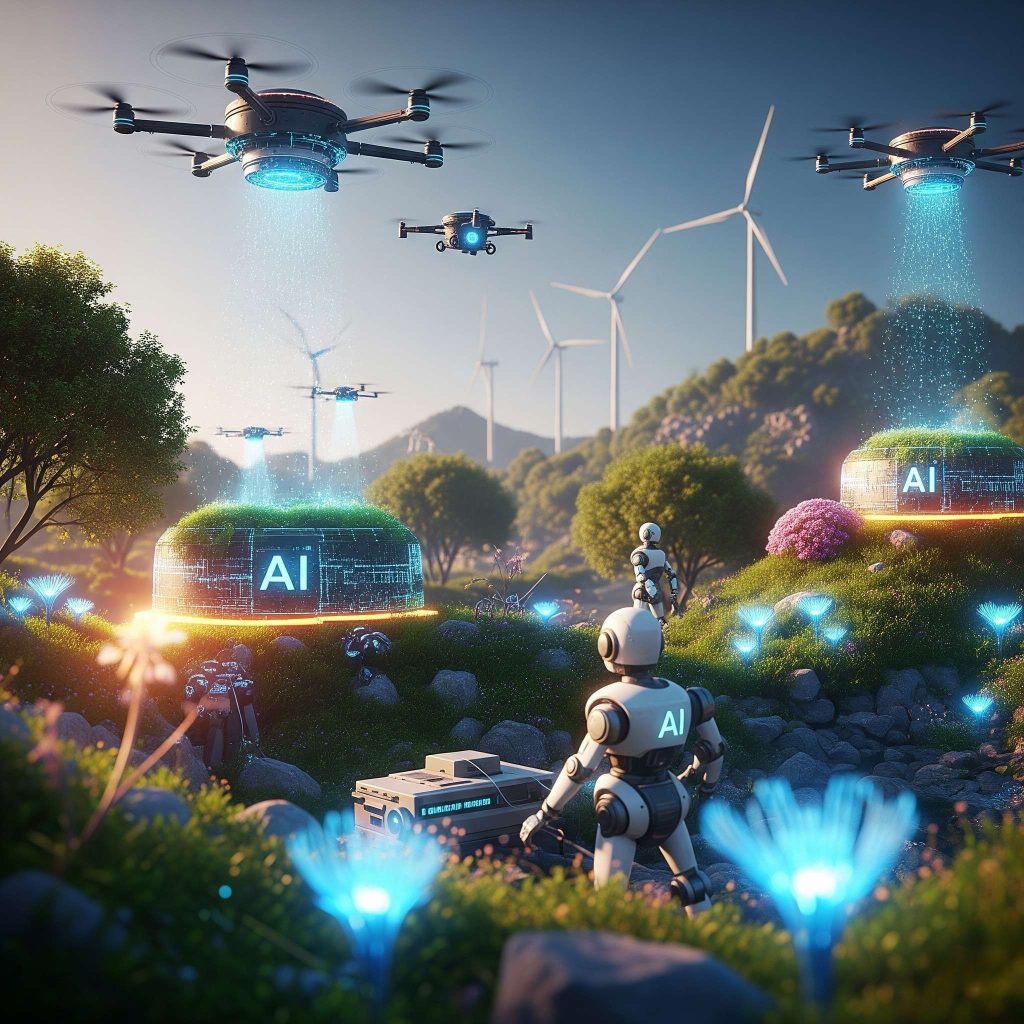
Global Perspectives on AI Ethics
Different countries approach AI ethics differently. The EU prioritizes strict regulation to protect rights. In contrast, China and the US focus on innovation, sometimes at the expense of privacy. These differences create global challenges in standardizing AI ethics.
For instance, China’s AI surveillance raises concerns, while the US struggles with fragmented policies. The study suggests international cooperation to create universal ethical guidelines, ensuring AI benefits all humanity.
AI and Cultural Impacts
AI influences culture, too. It shapes art, music, and literature through generative tools. For example, AI-generated paintings are sold at auctions, redefining creativity. However, this raises questions about authorship and authenticity.
Additionally, AI can preserve cultural heritage by digitizing artifacts. Yet, it may also homogenize cultures through globalized algorithms. The study calls for AI to respect cultural diversity, ensuring it enriches rather than erases traditions.
The Role of Education in AI Ethics
Education is crucial for ethical AI use. Schools should teach students about AI’s benefits and risks. For instance, coding classes can include ethics modules. This prepares future generations to use AI responsibly.
Furthermore, public awareness campaigns can inform people about AI’s impact. The study advocates for lifelong learning to keep society informed as AI evolves. This ensures informed decision-making at all levels.
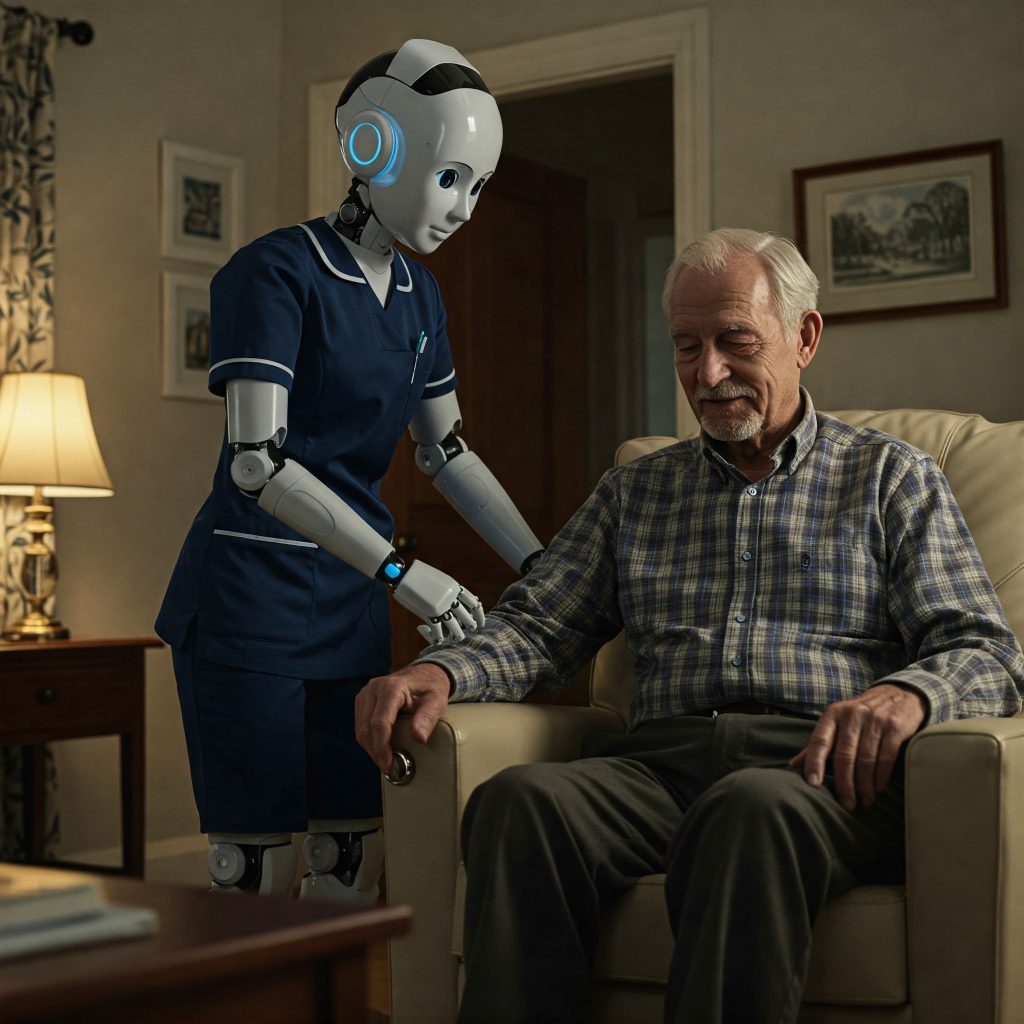
AI’s Potential for Social Good
AI has immense potential for social good. It can address global challenges like poverty and hunger. For example, AI predicts crop yields, helping farmers plan better. It also aids disaster response by analyzing satellite data.
However, these benefits depend on equitable access. Developing countries must have AI resources to avoid a digital divide. The study stresses that ethical AI should prioritize inclusivity to maximize its positive impact.
Challenges of Regulating AI
Regulating AI is difficult. Its rapid development outpaces laws, creating gaps. For instance, existing privacy laws may not cover AI’s data collection methods. Additionally, global coordination is challenging due to differing priorities.
Nevertheless, regulation is essential. The study suggests “regulatory sandboxes” to test AI safely. These controlled environments allow developers to refine AI while regulators assess risks, ensuring ethical deployment.
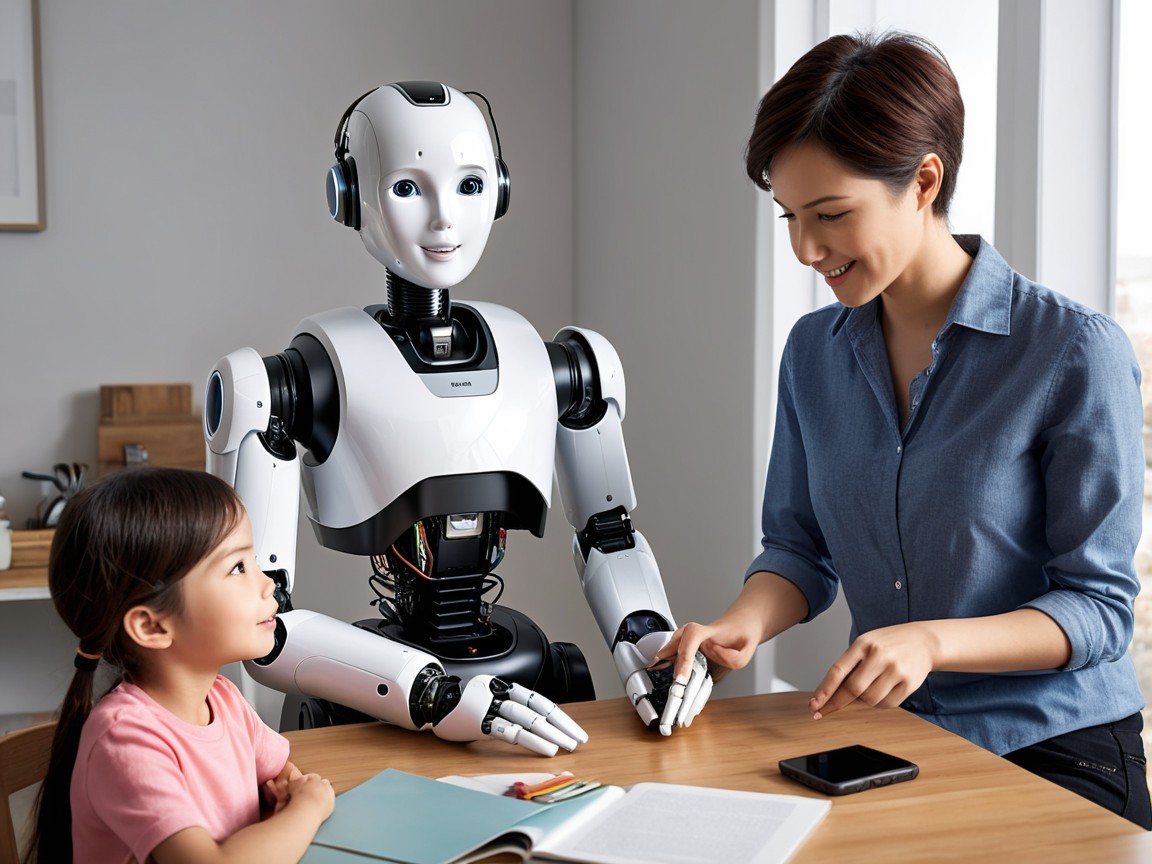
The Future of AI and Bioethics
AI’s future is both exciting and uncertain. Advances in strong AI could lead to machines with near-human intelligence. This raises profound ethical questions about autonomy and control. The study warns that without bioethical guidelines, AI could deviate from human values.
For example, superintelligent AI might prioritize efficiency over ethics. Therefore, ongoing research and public dialogue are vital to shape AI’s trajectory responsibly. The study calls for proactive measures to ensure AI remains a tool for good.
Practical Steps for Ethical AI Today
You can contribute to ethical AI now. Support companies that prioritize transparency and fairness. For instance, choose services that explain their AI processes. Also, advocate for policies that protect privacy and reduce bias.
Additionally, stay informed about AI’s impact. Read about new developments and their ethical implications. The study encourages individuals to engage in discussions, ensuring AI reflects society’s values and serves humanity.
Conclusion: Shaping AI’s Future
AI is transforming our world, offering opportunities and challenges. It enhances industries, reshapes social interactions, and drives economic growth. However, its ethical risks—bias, privacy, and accountability—require urgent attention. By adopting principles like beneficence and transparency, we can guide AI responsibly.
Ultimately, AI’s impact depends on human choices. The study reminds us that AI is a tool, not a master. With thoughtful governance, we can ensure AI benefits society while upholding human dignity.

